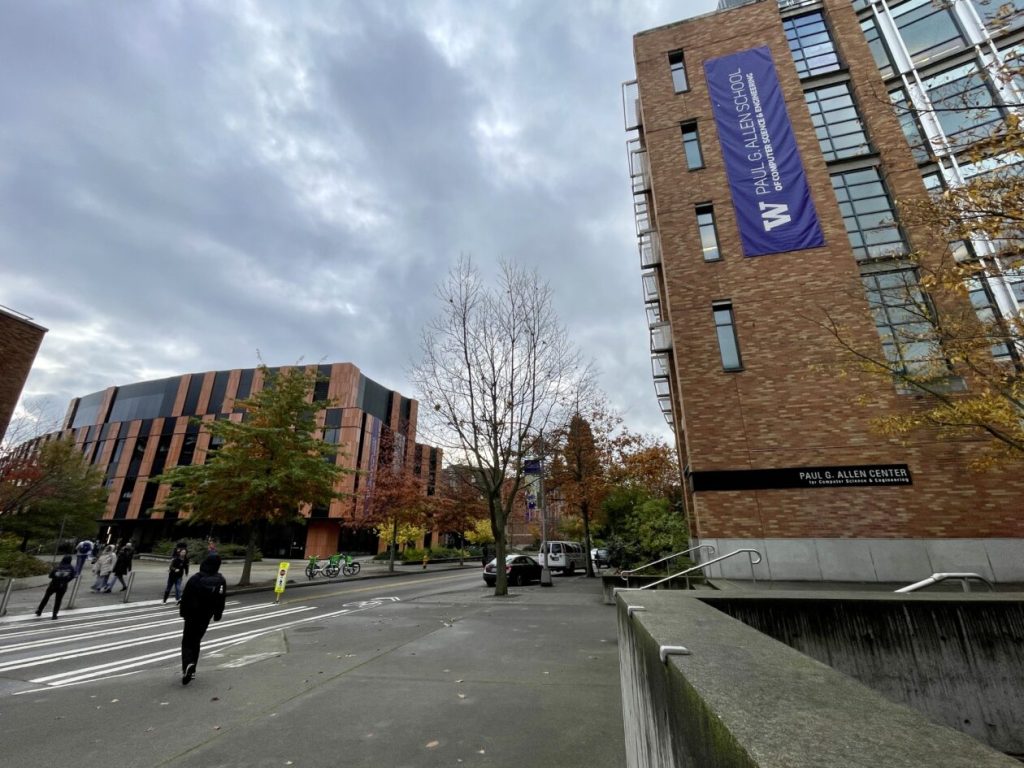The University of Washington’s Paul G. Allen School of Computer Science & Engineering recently held its annual Research Showcase in Seattle, focusing mainly on artificial intelligence (AI) and the work being done by UW students and professors in this field. The opening session, hosted by Magdalena Balazinska, highlighted the school’s AI-related initiatives, such as startup spinouts and published papers, emphasizing the transformational work being done by faculty members. The school plays a crucial role in the Seattle tech ecosystem by educating future entrepreneurs and tech leaders, as well as attracting researchers who hold industry roles while teaching at UW.
Balazinska outlined seven pillars of AI work happening at the school, including AI safety, fundamental AI, AI in the physical world, human-AI interaction, AI for health and biology, AI systems and infrastructures, and AI education. The school has seen a significant increase in graduates over the past eight years and is actively collaborating with other departments on AI research. According to Shwetak Patel, a professor at the Allen School, AI has a deep impact across the university, with every unit leveraging artificial intelligence in their research endeavors. This new paradigm in education focuses on teaching students how to utilize AI tools effectively, rather than delving deeply into traditional fundamentals.
The rise of AI technology has opened up new possibilities for students and researchers at the Allen School. Patel noted that AI is accelerating processes such as synthesizing literature and running simulations, enabling software engineers to tackle problems in domains that were previously inaccessible. For example, Sheng Wang, a UW assistant professor, is exploring how generative AI can be used to analyze pathology images, a task that would have required extensive collaboration across multiple fields in the past. AI has transformed the scientific approach by streamlining processes and allowing researchers to conduct studies more efficiently.
The industry-academic collaboration at the Allen School is exemplified by faculty members like Ali Farhadi, who balance roles in academia with industry leadership positions. The school offers a flexible policy that allows faculty to engage in both realms, contributing to the development of groundbreaking solutions in artificial intelligence. These collaborations not only benefit the research community but also enhance the educational experience for students by providing real-world insights and opportunities to work on cutting-edge projects. The Allen School’s commitment to AI education and research has positioned it as a key player in advancing AI technologies and applications.
The Research Showcase featured sessions on various AI topics, including the use of generative AI in biomedicine, demonstrating the diverse applications of artificial intelligence in different fields. AI is fundamentally changing the way researchers approach scientific studies, enabling them to streamline processes and achieve results more efficiently than before. The Allen School’s emphasis on AI education prepares students to navigate the evolving technological landscape and leverage AI tools effectively in their research and professional endeavors. The school’s initiatives in AI research and collaboration across departments showcase its commitment to fostering innovation and excellence in the field of artificial intelligence. The advancements made by the Allen School in AI technology are paving the way for cutting-edge research and solutions that will shape the future of the industry and academia.


